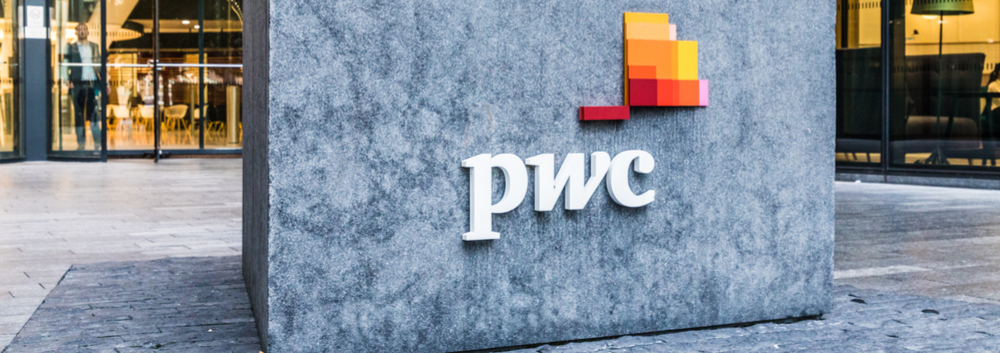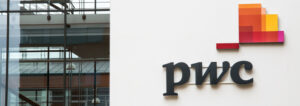Working flexibly and logically at PwC
- 8 Min Read
PwC is now allowing new hires to work the hours they want to through their Flexible Talent Network, we spoke with Helen Hopkin, Head of Workplace Strategy at PwC to understand how this will look and why it has been determined.
- Author: Emily Sexton-Brown
- Date published: Sep 25, 2018
- Categories

This new PwC initiative allows potential employees to list their skills and favoured work pattern during their application. PwC then determines based on your chosen working schedule whether they can accommodate these needs within the business.

We spoke with Helen Hopkin, Head of Workplace Strategy about why this particular scheme has been introduced, what flexible working looks like at PwC currently and quickly disappearing talent pools that companies will only have access to if they do not change to more flexible ways to work.
What was the key turning point for PwC to change their approach to work?
This was unearthed in a couple of different areas. Firstly, PwC did a piece of external research and the feedback from this research was that 50% of the respondents wanted flexibility in the way in they worked. It was a key driver in whether or not they worked for a particular organisation – which was particularly poignant in our research in terms of feedback.
Also, internally our people have been feeding back through our engagement survey that’s it’s important they have a level of flexibility within their roles. Therefore, we’ve introduced something internally called ‘everyday flexibility’ encouraging people to speak to their line manager and apply for flexible working arrangements.
The third area is that we felt we were missing out on top talent because the perspective in the market was that we didn’t necessarily work flexibily and that when you’re working for a large organisation such as ours, you have to work nine to five. I think the reason we’ve actively raised awareness around this was to bust some of those myths.
Can you give me an overview of this new working structure?
Essentially what we’ve done is asked people to resister and to give us an indication in their application in terms of what ideally what works for them. There’s a whole range of options coming back and we’ve been quite overwhelmed with the amount of applications.
“We’ve introduced something internally called ‘everyday flexibility’ encouraging people to speak to their line manager and apply for flexible working arrangements.”
We’ve had options such as flexing the typical working week to people working one day a week or even one day a month or working seasonally. Registering your interest and working wishes is the first stage, then there are two different approaches we are taking internally; we are looking at the applicants and determining whether they have the correct skills and experience for the role to work within our organisation. Last week’s we were up to 3,000 applications in terms of specific areas of the business there is a high percentage of people applying to work in management consulting, the next highest percentage are people wanting to work in more traditional accounting and the third is technology.
After we’ve determined what they are qualified to do we run a ‘matching’ across all the open vacancies we currently have in the firm. We do this to see whether these candidates would be suitable for existing opportunities and whether the business could make that working arrangement work for them in their business area. That’s the first approach we take.
 The second approach is if we know that these individuals have got the skills and experience that we need in our organisation but we don’t necessarily have the specific open vacancy we hold them in an internal talent pool. We will negotiate with them how many days a week they’d like to work and what type of working arrangement they’d like to have. We will then have them available to work for the firm if a suitable project comes up. That process is managed by a professional team of resource managers and deployers.
The second approach is if we know that these individuals have got the skills and experience that we need in our organisation but we don’t necessarily have the specific open vacancy we hold them in an internal talent pool. We will negotiate with them how many days a week they’d like to work and what type of working arrangement they’d like to have. We will then have them available to work for the firm if a suitable project comes up. That process is managed by a professional team of resource managers and deployers.
What happens to those already employed by PwC, are they ruled out of this initiative?
I was discussing this with someone who works within the organisation who was potentially thinking about leaving and starting their own business. They then saw this scheme and asked whether it would be possible to be part of the flexible talent network or involved in a highly flexible working arrangements whilst this individual was setting up their own business.
As a business we are in conversations with this individual about this opportunity. I do think that this will begin to snowball both internally and externally because I think there are people that work for us currently who may aspire to have an even greater flexible working arrangement.
We already run our very successful ‘everyday flexibility’ flexible working scheme across the entire company. There is also a lot of encouragement supported by our chief people officer around thinking about the way employees personally work everyday and to work in a way that suits them and the business. Therefore, if you don’t have any client meetings that day, you don’t need to be in the office. You’re encouraged to work from an office nearer your home, or indeed your home.
This entire term is called ‘everyday flexibility’.
What’d been the feedback across the business?
The feedback has been absolutely overwhelming both externally and internally. Our internal people love it, employees have been blogging on our internal systems and are very happy about how much promotion and engagement there has been externally. Externally the amount of press attention that the initiative has received has been phenomenal.
How does the scheme realistically work, the level of flexibility is endless – is that a problem logistically?
There was an article written on this exact subject questioning whether this was the good gig economy? The way this is designed is not typically ‘gig’, the ‘gig economy’ has received some negative press. In a way this could be the ‘good gig’ because we do confirm upfront how many days or hours you’re going to work for us and what that working pattern is going to look like and guaranteeing a certain number of days.
In terms of compensation, those involved in this scheme are paid in the same way as our own full-time people are who possess the same skills and experience as them. Therefore, there is no short changing them because they are on a different working contract.
Employees involved in this scheme are also given holidays, pension auto-enrolment, sick pay and the cash equivalent to some of the flexible benefits. Typically looking at an average contractor that would work for us for less than 12 months you wouldn’t register them for healthcare, however they’d receive the cash equivalent.
“I think building in much greater agility and mobility into our workforce is going to be absolutely critical.”
How do you reduce complications?
One of the things we have been working on is using algorithms to help us optimise the way we deploy our workforce. When you’ve got thousands of clients and thousands of employees potentially all working slightly different working arrangements you need the support of some pretty sophisticated optimisation and planning tools to make the whole process succinct.
Do you think that this new way of working will add a new entrepreneurial feel to the business?
Yes definitely. I think there are a few other myths we need to bust in this area. As well as ‘everyday flexibility’ we have also introduced things like ‘dress for your day’ therefore employees are not formally dress if they don’t have meetings scheduled. Everyday people can wear clothes suitable for the day ahead for instance if you’re in the office all day and have no meetings it’s perfectly acceptable to come into work in something you feel comfortable in. This was introduced about 12 months ago and the cultural difference has been very noticeable as well as the fact that we are refurbishing a lot of our offices making people’s working place feel and look very different making it feel far more entrepreneurial.
Do you think other companies will start to replicate the PwC flexible working model?
Yes I do, I think many organisations are realising that in order to attract the very best talent people don’t always want to work nice to five, they’ve got other commitments and indeed millennials for a long time now have wanted to work in a different way. Their lives are entwined between their home life and work life and technology very much enables it.
“I think the reason we’ve actively raised awareness around this was to bust some of those myths.”
What do you hope for the future workforce at PwC?
In terms of our workforce of the future I think the overarching feature will be that it’s less structured than it has been historically.
Our technology apprenticeship schemes partner with various universities to develop young people into technology professionals for the future and again the way in which we are managing that community of talent is very different, they don’t join PwC in terms of into our audit practice or into our tax practice which has happened historically they are just joining PwC because when they finally qualify in four or five years’ time we don’t know exactly where we’ll need them and equally they might want to choose which part of the firm they join.
I think building in much greater agility and mobility into our workforce is going to be absolutely critical and I think everything we’ve discussed is helping to shape that strategy.









